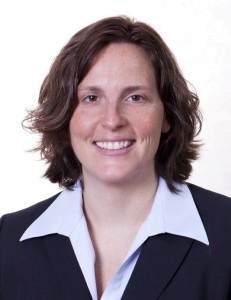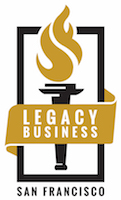Fighting for Employee Rights
 Emily Nugent, Esq., ALRP’s Attorney of the Year, started down the path to becoming a Panel attorney during a legal internship at the Whitman Walker Clinic in Washington, D.C. “I represented three clients with advanced AIDS, who were all experiencing discrimination at work,” she said. “I thought, ‘Didn’t everybody see the movie Philadelphia? Don’t we all understand that this isn’t right?’”
Emily Nugent, Esq., ALRP’s Attorney of the Year, started down the path to becoming a Panel attorney during a legal internship at the Whitman Walker Clinic in Washington, D.C. “I represented three clients with advanced AIDS, who were all experiencing discrimination at work,” she said. “I thought, ‘Didn’t everybody see the movie Philadelphia? Don’t we all understand that this isn’t right?’”
After helping these clients exercise their legal rights in the workplace, Emily was determined to pursue a career in employment and discrimination law.
Emily joined Dickson Geesman LLP in Oakland three years ago, where she focuses on civil rights in the workplace. She joined the Panel in 2010, and has since provided legal help to 16 clients. “Our firm’s purpose is to help employees, so my Panel work fits right in. I’m grateful that I have the freedom to do the kind of work I want to do, for the people I want to help, and for the community that first started me on my career path to employment law.”
Emily’s ALRP cases have ranged from complex to simple. Sometimes just having an attorney make a phone call or write a letter can make all the difference for clients who hope to get their jobs back or receive severance pay.
Other employment cases are not as straightforward. One ALRP client, who has survived multiple instances of AIDS-related cancer, relies on the comprehensive medical treatment available in San Francisco. When his employer tried to transfer him across the country, Emily helped him fight for a reasonable accommodation so that he could remain in San Francisco. After working with Emily, this client called ALRP to tell us that working with Emily was “the best Christmas present ever.”
“When you have medical complications that come with being HIV+, the last thing you want to worry about is your income and insurance,” Emily said. “I help people keep their jobs and give them the information they need to advocate for themselves at work.”
After advocating on behalf of ALRP clients for two years, Emily has come to appreciate ALRP’s unique model of service. “ALRP clients always thank me for my service not only to them, but to ALRP, which I think is unusual in legal services,” she said. “Clients call me because they have something distressing going on in their lives, and yet they also take the time to thank me.”
What really stands out to Emily is that ALRP’s work is such a collaborative effort. Because we all have the common goal of addressing the legal needs of people living with HIV/AIDS, everyone at ALRP supports each other. “The staff of ALRP is really good at building relationships with both clients and attorneys. They make me, as a volunteer, feel so valued.”
Published December 2012

